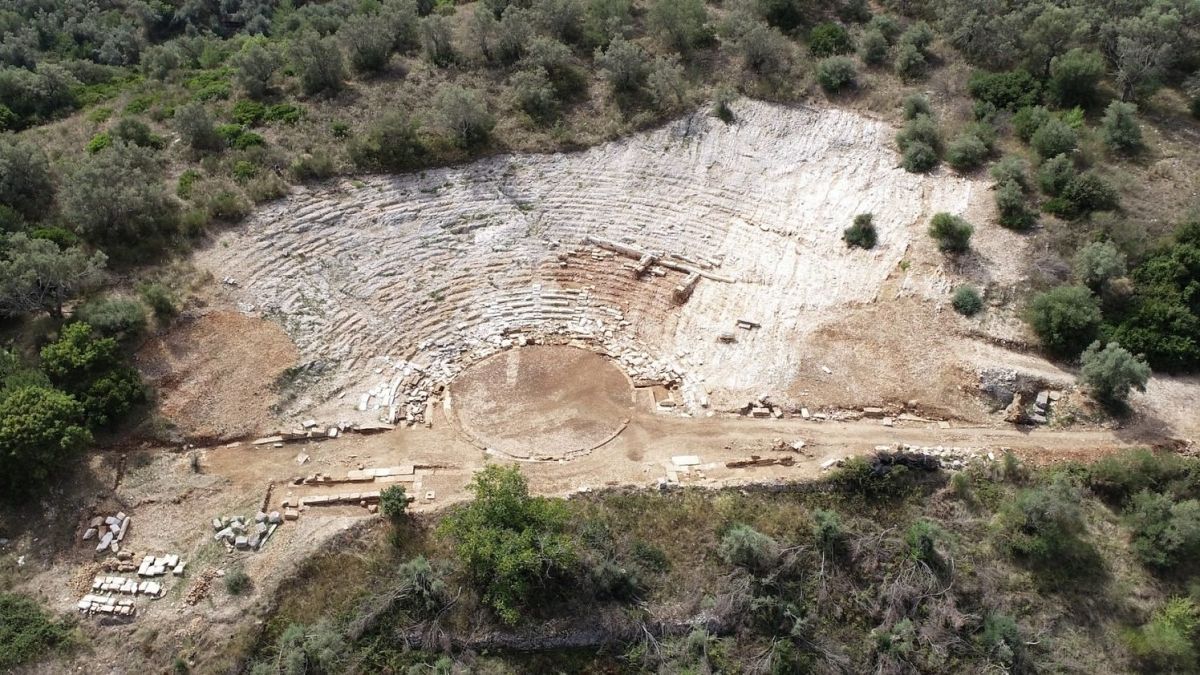As people whose homes were destroyed by the Eaton Fire prepare to rebuild, the U.S. Army Corps of Engineers continues to remove debris from the area, including trees that are so badly damaged they cannot survive or regrow.
But instead of merely tossing out trees that have been deemed "unrecoverable,” some residents have reached out to Angel City Lumber, a sawmill that specializes in products made from felled trees in L.A. County.

Jeff Perry, the sawmill’s founder, explained that trees in Altadena are not typically fit to frame a house or similar projects. However, lumber from those trees — called “millwork” — can be used for flooring, moldings, furniture and similar applications. But watching local residents take on an additional cost after everything they’ve been through doesn’t sit right with Perry.
“We come down [on the price] as much as we can, but it's almost adding insult to injury,” he said. A community 'log bank' To support residents who want to give “unrecoverable” trees a chance to stay in the area, Perry established the Altadena Reciprocity Project, in partnership with two local landscape architects. Together, they’re working on an initiative to create a “community log bank,” made up of these types of trees donated by local residents.
Ultimately, this lumber will return to Altadena and other impacted areas, at below market price. “After the fires, we've all been grappling with how to respond to this moment,” said Ruth Siegel, deputy director of Los Angeles Tomorrow, a nonprofit that focuses on community-powered public space improvements. She and Blake Jopling, a longtime Altadena resident she met while working at Descanso Gardens, have volunteered their time to help Perry get the project off the ground.
“Trees are a gift,” Perry said, “from germination through death. And we can continue to utilize the gift of wood from these trees, or we can squander that gift, which I believe is very disrespectful.” What the team needs to scale up When residents who’ve been impacted by the recent fires call Angel City Lumber, Jopling interacts with the Army Corps to ensure the trees aren’t hauled away.
Then Perry sends a contractor to pick up the tree and put it in storage. But to capture the remaining trees in Altadena, the team needs to scale up, and they need to do it quickly, Siegel said. She recently learned that all the logs that have been removed so far have been stockpiled at a golf course, awaiting being chipped and hauled away.
“We are going to be coordinating with the [Army Corps] contractor to see if they will be OK with leaving the logs at the golf course,” Siegel added. The trio will then ask county officials to let them store the logs at the golf course until they are ready to be used in construction. Racing against time Right now, they’re working to raise about $400,000 to buy the machinery and hire personnel required to pick up all remaining trees — all before the Army Corps completes cleanup of burned sites.
The team is also in search of volunteers to interact with the Army Corps’ contractor “to make sure the trees are coming down with the appropriate specs, and that they're left in a place that is accessible,” Siegel said. She underscored that salvaging Altadena's trees will also reduce the carbon footprint of rebuilding. At the moment, “we're bringing in all of our lumber for construction from the Pacific Northwest and Canada,” she said.
If the team’s initiative succeeds, Altadena residents will be able to donate their tree, have it hauled away at no cost, and receive a credit to get lumber from the reserve. When they're ready to rebuild, residents will get lumber from trees that once grew in the community. In addition, they would also have access to lumber that comes from felled trees from the Angeles National Forest, which is fit for structural construction.
“What we really want to do is just preserve as much as we can of what remains,” Siegel said..
Environment

A second life for Altadena’s burned trees

The Altadena Reciprocity Project aims to keep trees from burn sites in the community after the Eaton Fire.















